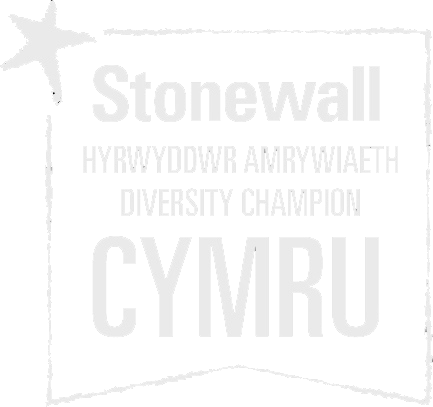UWTSD Home-Study With Us-Postgraduate Courses- Global Citizenship and Sustainable Leadership (MA, PGDip, PGCert)
The MA Global Citizenship and Sustainable Leadership is an interdisciplinary programme prepared to provide a unique leaning experience for students to develop intercultural literacy and leadership skills and to engage with the key challenges of the 21st century.
This innovative programme, developed between the Wales Global Academy and the Institute of Education and Humanities, draws upon the interdisciplinary context of the University’s work to enable students to develop skills, knowledge and social awareness of Global Citizenship by asking questions about empowerment and leadership, social and historical narratives and culture, and identity and dialogue.
You can apply directly to the University using theApply Nowbutton at the top of the page.
Book an Open Day Book a Taster Day Request Information
Tuition Fees 2023/24:
Home:£7,800
Overseas (distance/online):£10,000
Overseas (on-campus):£15,000
Fees are for the whole course
Why choose this course?
You will engage with a wide range of subjects to confront the key challenges to society in our contemporary world
You will explore key 21stcentury challenges from multiple perspectives, and develop understanding of how to interact and engage with different cultures from across the world
You will engage in collaborative learning with students from around the world
You will benefit from the engagement with expert scholars from multiple fields drawn from our specialist interdisciplinary research centres.
What you will learn
This programme offers an opportunity for students to engage critically with a number of key 21stcentury issues, such as the need for a resilient Global Citizenship, Empowerment and Leadership, Contested Histories, and Critical Approaches to Culture. In addition, the programme assists students in developing the necessary skills to make a difference within their communities, such as intercultural literacy and leadership skills.
The modules adopt a largely critical humanities approach to matters of relevance to global citizenship in the contemporary world, exploring and adopting a number of critical frames in order to interrogate subjects like the legacy of violence, colonisation, environmental degradation, and social displacement. Individual modules and project elements root this approach within areas of particular interest to students.
This critical and humanities orientation of the programme provides a unique aspect to the University’s offer in this area, and further develops strong research and teaching at this level in the Institute of Education and Humanities. This degree actively seeks to engage with diverse communities/individuals to develop a platform for interdisciplinary work which we believe to be vital for a sustainable and harmonious world for today and future generations.
This programme will attract students from diverse backgrounds, interests and range of undergraduate degrees, with a particular focus on enabling students to undertake postgraduate study with UWTSD. This degree responds to graduates and mature students from an international audience who are seeking to develop an in depth understanding of the interdisciplinary nature of Global Citizenship and related matters, and are seeking to understand how different aspects of their lived experience are connected and interconnected.
This programme draws on the University's commitments to realising the Wales Well-Being of Future Generations Act (2015), to the embedding of the United Nations Sustainable Development Goals, as well as alignment with UNESCO’s Operational Strategy for Youth (2021-27) and Medium Terms Strategy (2022-29) in programme delivery and content.
在实现这些承诺,计划draws strongly upon the interdisciplinary context of the current Institute of Education and Humanities offering, aligning itself with developments in the Federation of Interfaith and Intercultural Dialogue, the UNESCO Bridges Sustainability Science Coalition, the Canolfan Tir Glas和威尔士韧性与和谐中心nd the newly developed Global Humanity for Peace Institute. In addition to these new centres of excellence, the programme draws on existing research strength in the Humanities, including areas in sustainability, leadership, global peace, and intercultural and interfaith dialogue.
Global Citizenship
This module provides an opportunity to critically examine the complexity of global systems, the current challenges in achieving the UN Sustainable Development Goals, and the student’s own individual role and contributions as a global citizen.
Empowerment and Leadership
This module allows students to critically examine the challenges of community empowerment and the role of leadership within a cross-cultural setting. It enables students to develop the ability to critically reflect and critically evaluate their own values and leadership skills and how they may be applied within a cross-cultural setting.
Contesting Social & Historical Narratives
This module enables students to critically examine the complexity of individual, national, and international narratives and their impact on collective community perspectives. It also considers key drivers which shape community experience and the implications for shaping future collective narratives.
Culture, Identity & Dialogue
This module enables students to develop intercultural literacy through the critical examination of common or shared materials and processes. It enables students to identify and apply key approaches to matters of culture, identity, and dialogue.
MA Dissertation
Students are given the opportunity to research in detail a topic which has particularly appealed to them and wite an extended dissertation. Students will be allocated a supervisor to help guide them through their dissertation.
Assessments within modules will allow for a range of outputs including traditional essays, but also the development of research project methodology, seminar presentations, portfolios and other genres of writing. In addition, a strong focus on group work, either as formative or assessed material, will provide a strong and cohesive core to the delivery of the programme.
The core assessment is the final 15,000-word dissertation. The dissertation places a premium on originality and independent research. To equip students with the necessary knowledge and techniques for dissertation work, they will be engaged in research methodology approaches throughout the taught element of the programme.
关键信息
Applicants are expected to have a good first degree (a first or upper second), although every application is considered on its own merit, so places may be offered on the basis of professional qualification and relevant experiences. Candidates with a lower degree classification or no degree may be admitted at Postgraduate Certificate or Diploma level, with an opportunity to upgrade to Master’s level if satisfactory progress is made.
This programme aims to develop students’ intellectual independence and critical engagement in connection with global citizenship and sustainable leadership.
Students may spend up to £200 per year on books and additional related materials.
You may be eligible for funding to help support your study. To find out about scholarships, bursaries and other funding opportunities that are available please visit ourBursaries and Scholarshipssection.
Pleaseget in touchwith us if you have any questions related to the University or to this course in particular.








